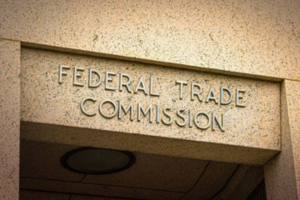 Welcome to IAB’s Public Policy Newsletter
Welcome to IAB’s Public Policy Newsletter
Welcome to IAB’s end-of-year Public Policy Newsletter, a wrap-up of the biggest issues our industry faced and IAB’s advocacy for the digital advertising industry in 2024. Despite the recent election of a new President and Congress, publishers, brands, agencies, and ad tech companies will face many of the same challenges and opportunities next year. IAB will be there to support our members.
Getting Data Privacy Rights Right

In 2024, IAB members were hopeful that a new national data privacy bill would correct mistakes of the American Data Privacy and Protection Act (ADPPA) in the previous Congress. Although ADPPA represented a step forward – the most serious effort so far to solve a complicated patchwork of state laws – it contained loopholes for conflicting state laws, restrictions on ordinary customer data and personalized advertising, as well as a “private of action” and overlapping enforcement that would lead to more fees, fines and frivolous lawsuits, including for small businesses.
Unfortunately this year’s American Privacy Rights Act (APRA) missed another opportunity to protect consumers, innovation, jobs and the economy. Instead of preventing a private right of action, APRA expanded it, as well as definitions of “sensitive data.” Without anonymous browsing information, for example, many small businesses and publishers who rely on targeted ads or ad revenue would cease to exist. APRA’s definition of a small business would have subjected even the smallest to the same regulations as the world’s biggest companies. In Europe, similar regulations, such as “data minimization” rules prohibiting data collection and processing for legitimate purposes, have stifled innovation and investment.
IAB strongly supports a federal law to protect consumer data and punish bad actors, and we have lent our expertise to improve both ADPPA and APRA – which failed to emerge from the House Energy and Commerce Committee this year. However, as we continue to advocate for a solution to a complex patchwork of state laws, no federal law is preferable to a bad one jeopardizing our country’s technological and economic leadership. IAB is also working to harmonize state laws. Some already in effect, like Virginia’s, give consumers new rights to control their data, while also supporting digital advertising and the online sharing economy. Others set to take effect in 2025, such as Maryland’s, are poised to be even more restrictive and punitive than any existing today, underscoring the urgent need for a federal bill that preempts state regulations.
Related Coverage:
Don’t Sleep On Maryland’s Strict New Data Privacy Law (AdExchanger)
Why a Landmark Kids Online Safety Bill That Passed the Senate is Still Deeply Divisive (NBC News)
U.S. Data Privacy Proposals Are Anti-Business and Pro-Censorship (Ad Age)
A Turning Point at the FTC

With the Senate focused on narrower children’s safety measures, the online privacy debate has largely taken place in the closely divided House of Representatives, a dynamic that will continue next year. However, with a new party in control of both chambers, the prospects for a preemptive federal data privacy bill without a private action may be greater. There will be new leadership at the Federal Trade Commission (FTC) too.
Under its current leadership, the FTC has portrayed digital advertising as inherently unfair and deceptive, and in the absence of congressional data privacy legislation, sought to enact sweeping rules for “commercial surveillance.” Proposed rules to punish a few companies are so broad they could criminalize the internet. More recently, the FTC issued a report characterizing popular social and streaming platforms as widespread consumer harms. In reality, audio, video, gaming, and other online platforms have lowered barriers for entrepreneurs and creators of all backgrounds.
“We are disappointed with the FTC’s continued characterization of the digital advertising industry as engaged in ‘mass commercial surveillance,’” said David Cohen. “Nothing could be further from the truth, as countless studies have shown that consumers understand the value exchange and welcome the opportunity to have access to free or highly subsidized content and services.”
Beyond the buzzwords, the FTC’s recent report acknowledges that free, ad-supported content across various platforms depends on common marketing data to be timely and relevant. The agency highlights the efforts media platforms make to safeguard their users and underscores the need for national data privacy legislation to establish consistent, fundamental protections for everyone – just like IAB and our members do.
Under new leadership, proposed rules for “commercial surveillance” and other misguided policies may not survive. However, digital advertising is expected to remain a focus. President Trump’s nominee to head the FTC has promised to scrutinize “Big Tech” for online speech violations, while his nominee for the Federal Communications Commission (FCC) has pledged to investigate social media, search, and internet companies. IAB has consistently urged regulators to protect Americans’ access to low-cost digital advertising tools and ad-supported media. We support consumer protection and free speech, choice and competition in the marketplace, and look forward to helping the incoming Administration to understand the importance of digital advertising to jobs and economic growth.
Fighting to Protect the Digital Economy

Looking ahead, we hope to see less partisanship and more collaboration in Congress and at the FTC. In the meantime, IAB will continue to defend digital advertising, upholding the rights of our members and their customers to communicate and conduct commerce online. As part of these efforts, we joined a coalition of leading trade associations to file suit against the FTC, challenging its recent rule changes for subscription renewals.
Under its current chair, the FTC has taken a dramatic turn from previously announced rulemaking for “negative options,” a practice where consumers continue to receive subscription services unless they cancel. Newspapers, magazines, delivery services, gyms and other businesses have relied on the model for decades. In the digital age, as consumers have become accustomed to quick, convenient transactions, recurring subscriptions have become more popular and important to the U.S. economy. Start-up direct-to-consumer brands can develop reliable revenue, grow and hire. For less than the price of a CD, you can purchase a monthly subscription to an unlimited selection of music.
IAB supports updating subscription rules to prevent abuse. However, like other challenges to digital advertising and e-commerce, the FTC’s overreach—based on an unfounded assumption of widespread harm—poses a significant threat to the vitality of the online ecosystem. In our lawsuit, IAB contends that the agency bypassed required legal procedures for rulemaking, neglected essential economic analysis, and excluded meaningful public input.
In administrative hearings this year, a federal judge agreed with IAB and other stakeholders that proposed changes could result in compliance costs far exceeding the $100 million threshold requiring further study. Nevertheless, the FTC ignored the evidence to speed ahead with new rules before a presidential election. The costs and complexity of implementing them could cause providers to abandon the subscription model altogether, representing a true harm to consumers, contrary to the FTC’s mission.
IAB supports punishing bad actors who abuse the public’s trust and will keep fighting to ensure the benefits of the online economy for everyone.
Related Coverage:
IAB, Cable Providers Sue FTC to Cancel “Click to Cancel” (Tech Target)
Business Groups Protest FTC’s New Click-to-Cancel Rule, IAB Sues (Retail TouchPoints)
Small Businesses Educate Policymakers

Internet for Growth is a nationwide coalition of small businesses and creators raising awareness of digital advertising issues for policymakers. Retailers, restaurateurs, realtors, and others, sharing their online success stories and concerns about misguided advertising policy, have been instrumental in stopping bad bills in Congress and state capitals.
In virtual and in-person meetings, the media, and letters to federal representatives, thousands have helped to convince lawmakers in Washington that the American Privacy Rights Act (APRA) would raise ad prices during a time of severe inflation, tilt the playing field in favor of big companies, and deprive Americans of choice and convenience. Congressional leaders who rejected the bill cited the concerns of small businesses.
In 2024, Internet for Growth sprang into action to defeat similar bills in Vermont and Maine, a digital ad tax in Nebraska, and a California state bill that would have excluded small businesses from AI marketing and advertising tools. At IAB’s Congressional Education Series this summer, Internet for Growth members educated congressional staff about the value of digital advertising to jobs and the economy in their local communities.
Appearing via video, Frank Swoboda, owner of Corner Booth Media in Spokane, Washington, emphasized the critical role of online ads for small businesses and nonprofits in helping students access financial aid. Oma Christina, Founder and CEO of The Hair Chest in Columbus, Ohio, highlighted how affordable social media and search engines enable her to manage marketing independently and generate enough revenue to hire an assistant. Lauren Spatafore, owner of Lunatic Fringe Hair Salon in Salt Lake City, Utah, noted that clients of all ages use social media to discover her services, and online advertising and marketing is becoming an increasingly popular, in-demand career among young people.
Internet for Growth needs the support of more IAB members to reach a wider audience and make a difference in the most important digital advertising issues today. Policymakers are listening. To get involved, please contact Executive Director Brendan Thomas at [email protected].
Related Coverage:
The American Privacy Rights Act Will Hurt Utah Business Owners Like Me (Salt Lake Tribune)
Congress Should Balance Privacy Protections with Small Business Needs (Colorado Newsline)
IAB Public Policy and Legal Summit 2025
IAB Public Policy and Legal Summit is back! Last year’s event was a sold-out success, and now is your chance to secure your spot. Don’t miss out on this essential gathering where leaders from advertising, media, technology, and government come together to tackle the most pressing legal, policy, and technical challenges facing our industry.
Join IAB’s Public Policy Council
IAB holds regular meetings with members of its Public Policy Council. If you are interested in getting involved, please email Michael Hahn, Executive Vice President, General Counsel at IAB, IAB Tech Lab at [email protected].




